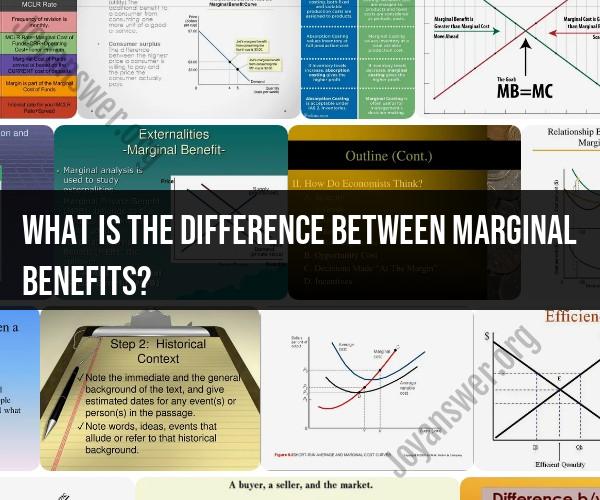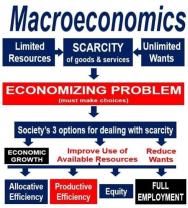What is the difference between marginal benefits?
Marginal benefits refer to the additional or incremental benefits that are gained from consuming or producing one more unit of a good or service. The concept of marginal benefits is closely related to the economic principle of marginal utility, which states that as individuals consume more of a product, the additional satisfaction or utility derived from each additional unit tends to decrease.
The key distinction when discussing marginal benefits lies in understanding the nature of these benefits and how they relate to the level of consumption or production. Here are two important aspects to consider:
Diminishing Marginal Returns:
- One of the fundamental principles in economics is the law of diminishing marginal returns. This principle suggests that as you increase the consumption or production of a particular good or service while keeping other factors constant, the marginal benefit you gain from each additional unit will eventually decrease.
- For example, if you're eating slices of pizza, the first few slices might provide a significant increase in satisfaction (marginal benefit). However, as you continue eating more slices, your enjoyment per slice might decrease, leading to diminishing marginal benefit.
Marginal Benefit and Decision-Making:
- Understanding marginal benefits is crucial for decision-making. When making choices about consumption or production, individuals and firms consider the marginal benefit compared to the marginal cost (additional cost) of the next unit.
- If the marginal benefit of consuming or producing an additional unit is higher than the marginal cost, it's generally considered beneficial to proceed. However, if the marginal benefit is lower than the marginal cost, it might not be a wise decision.
In summary, the difference between marginal benefits lies in their relationship with consumption or production levels and their connection to the principle of diminishing marginal returns. Marginal benefits provide insights into how additional units of a good or service contribute to overall satisfaction or utility, and they play a significant role in economic decision-making.












